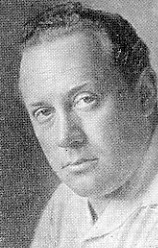presents
 Rekemchuk, Aleksandr Evseevich. Born on 25 December 1927 in Odessa, the son of a journalist and counterintelligence agent who was shot in 1937.
Rekemchuk, Aleksandr Evseevich. Born on 25 December 1927 in Odessa, the son of a journalist and counterintelligence agent who was shot in 1937.Rekemchuk's first literary work, a poem, was published in 1937. He finished artillery school in 1946 and enrolled in the Gorky Literature Institute in Moscow. In the spring of 1947 he was sent to the Komi Autonomous Republic in the far north to do some practical work. He fell in love with the area and stayed on for some 15 years, choosing to complete his studies at the Gorky Institute via correspondence. In 1948 he became a member of the Communist Party. In Komi he worked as a correspondent for various magazines and newspapers including Ogonyok, Za Gazifikatsiu ("For Gasification"), and Krasnoye Znamye. A collection of Rekemchuk's stories, entitled Hard Frost (Stuzha) appeared in 1956. A year later, he was a member of the Writers Union. The tale Shores (Berega) appeared in 1958. It is the story of a dentist, a lecturer, and a cinema operator who take a trip along the river Yuva, enjoying the beautiful scenery, visiting the taiga settlements, meeting and getting to know the happy, good-natured, and cheerful locals. This was followed in 1959 with Summer Holiday Time (Vremya Letnykh Otpuskov). In this tale, set in the far north, an engineer-geologist named Svetlana, dreaming of the warm seas of the south, is just about to set off on her summer vacation. Her plans are put off, however, as she is temporarily appointed director of an oil-mining operation. The oil field has been pretty much exhausted and the operation regularly fails to meet the plan. Her friend, however, comes up with an idea to increase production with the help of water pressure. In the end, Svetlana gives up her vacation and decides to stay on to put the plan into action. Rekemchuk's next major work was Callow Youth (Molodo-Zeleno, 1962), revolving around construction of new towns in the far north. The hero of the novel, Nikolai, is a young assembly worker on a construction site in some remote taiga location. Construction has ground to a halt because of a lack of bricks. So Nikolai skis to the nearby town to demand bricks from the brickworks. In order to accomplish this he must agree to stay on in town and help the brick factory convert to new technology. During Nikolai's stay, the town is flooded; he fumigates an apartment to get rid of vermin and fat cats; he belittles religious believers; and he falls in love with the town's chief architect. The novel also provides a glimpse of the space-craze that swept the Soviet Union following Yuri Gagarin's flight in 1961. (Many of the workers volunteer to be sent to the moon.) In 1963, Rekemchuk became assistant chief editor of the journal MG. Between 1964 and 1967 he served as an editor for the Mosfilm Film Studio. From 1966 to 1970 he was on the editorial board of the journal Znamya. Rekemchuk's works Comrade Hans (Tovarishch Ganc, 1965) and Poor Soil (Skudnii Materik, 1968), were followed in 1971 by the novel Boys (Malchiki), also translated as "Boys Who Did A-Singing Go". It is a story about the Boys' Choir of Moscow. It details the lives of the boys, how they are introduced to music, and choose their paths in life. It is also a story about Moscow, since that is where the boys first come in contact with adult life, have their first failures and triumphs. The story revolves mainly about a boy named Zhenya. In the course of his work, his voice is damaged, but he meets this challenge nobly, finishes his studies and enters the conservatory's composition faculty. In 1970, Rekemchuk joined the editorial board of the journal Novy Mir. That same year, he became a working secretary for the administration of the Moscow branch of the Writers Union, a position he held until 1977. In 1971, he was appointed to the board of the All-Union Writers Union. In 1975 he began conducting seminars at the Gorky Literature Institute. In 1979, Rekemchuk published A Tender Age (Nezhnii Vozrast). Set in prewar times, it is the story of two boys who are classmates growing up. They go on to the same artillery school, then are sent to the front together. The novel Thirty-Six and Six (Tridtsat-Shest i Shest) appeared in 1984. In 1988 he was named professor at the Gorky Literature Institute. In 1990, he became a member of the coordinating council of the movment Aprel. Rekemchuk was twice awarded the Order of the Red Banner. He also received the Order of the Friendship of Peoples and various other medals. The most important thing for a writer, in Rekemchuk's opinion, is people. As he wrote: That is what is most important for a writer--to observe the lives of people year after year, to know their moments of happiness and of misforune, to see characters in development. |